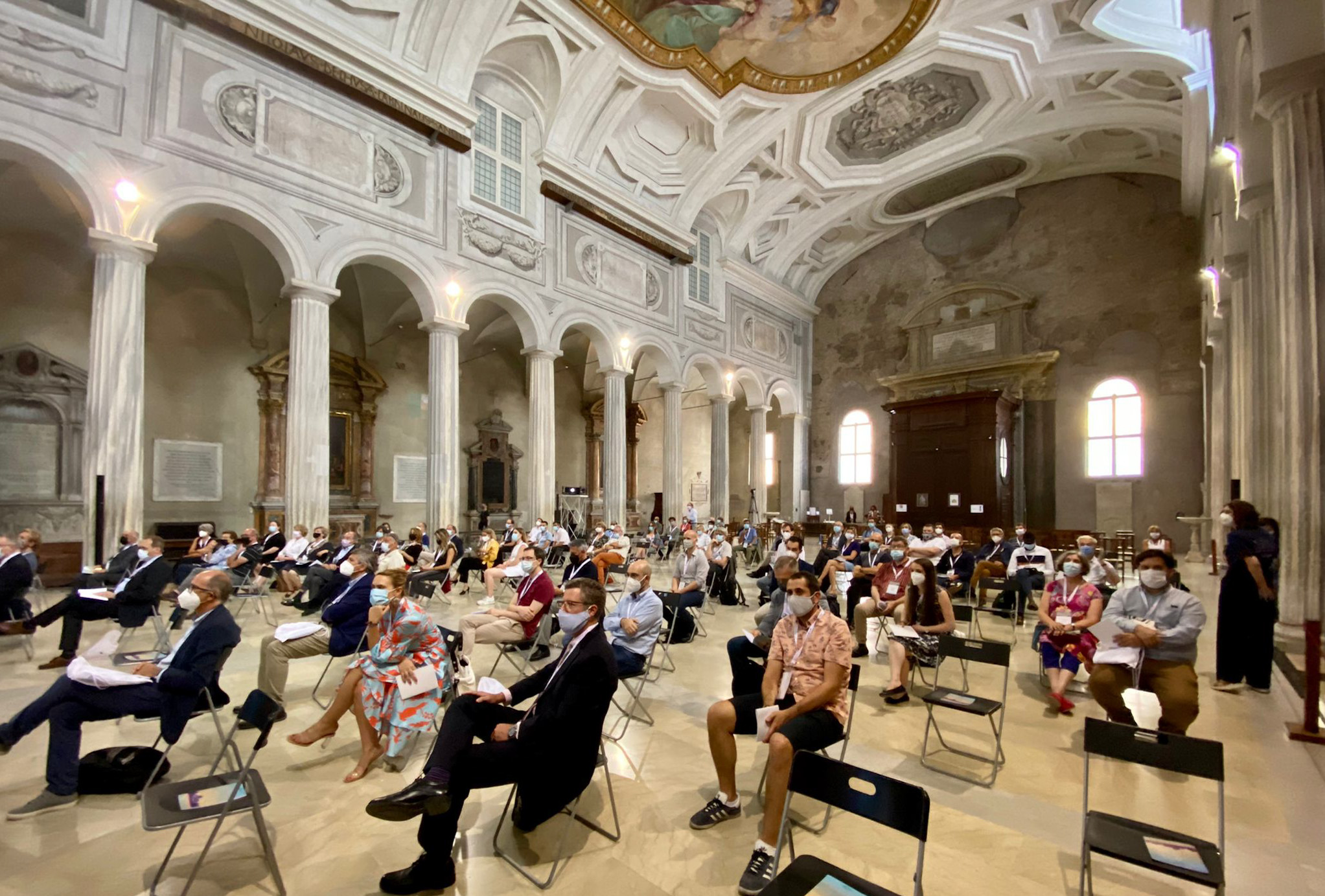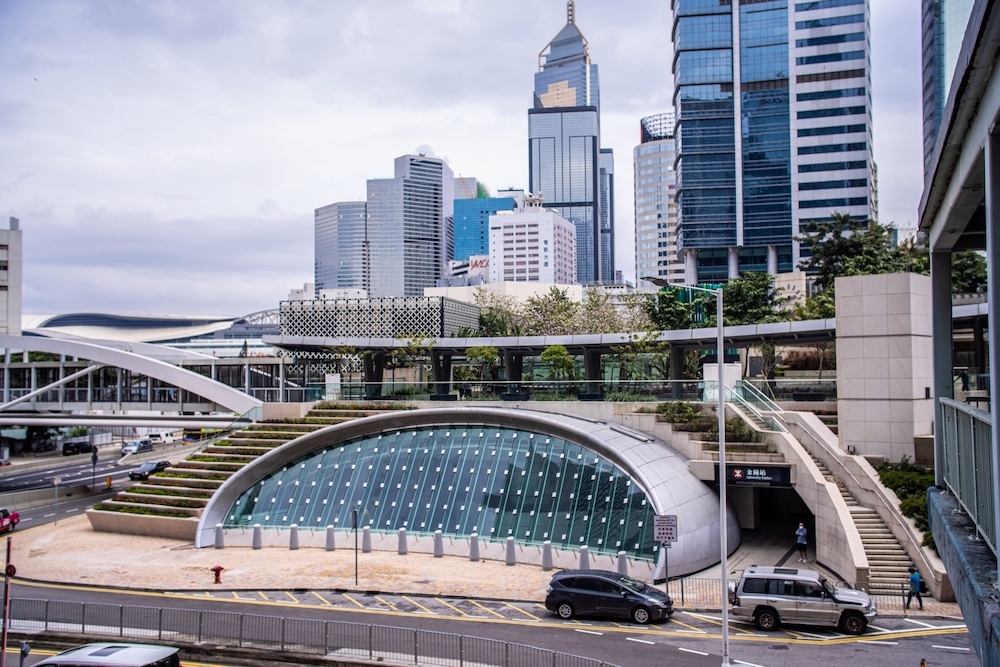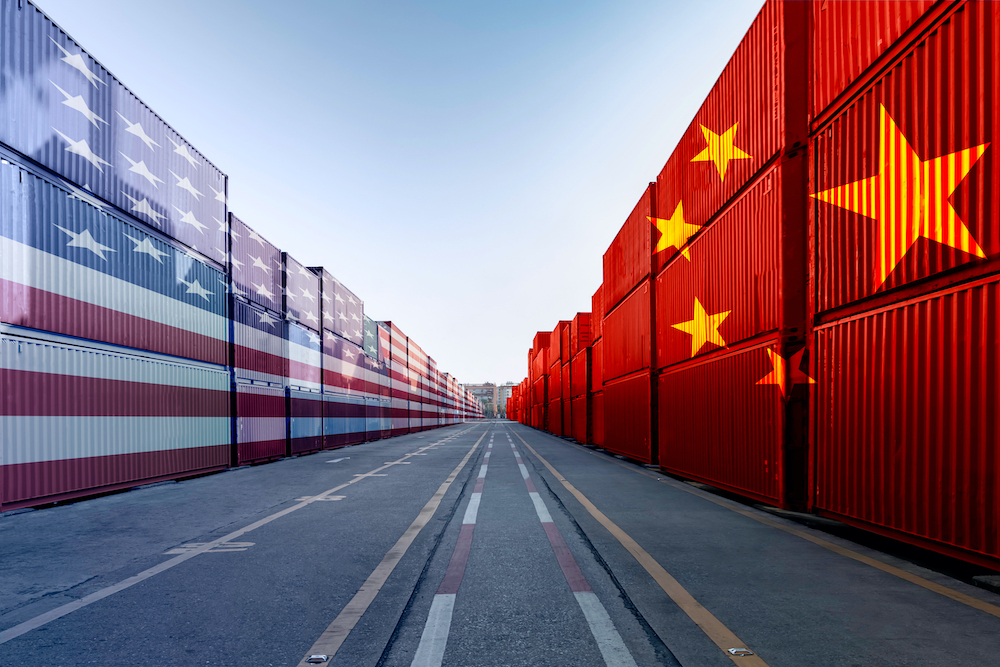It seems a funny idea to build a Christmas tree out of a heap of old newspapers. A school might do it – but why would a hotel decide to decorate its lobby with such a thing?
The used-paper Christmas tree was the brainchild of the Eaton Hotel Hong Kong and the company built it last December to emphasise its strong commitment to environmental issues. The team had fun with the project, but they came up with an even wittier idea this year: building a Christmas tree out of used plastic bottles, with lights connected to a stationary exercise bike. To make it completely environmentally friendly, guests will have to get on the bike to make sure the Christmas lights go on.
In choosing a field for their corporate social responsibility (CSR) programme, companies don’t need to enter into expensive and complicated arrangements. Instead, they should give what they have and stay close to what they are good at.

The 465-room Eaton Hotel looked around to see what they could do. “We decided to donate food, reduce waste and support the local community. It’s a natural fit with our CSR work,” says Steve Woods, the hotel’s director of sales.
Working with Foodlink Foundation, Hong Kong’s leading hunger relief charity, staff regularly collect surplus food, go to the distribution centre to help put the packs together and help distribute them to the homeless.
“The staff are 100 percent behind it,” says Eaton Hotel’s Woods.
To protect the environment, the hotel has minimised its consumption of energy and water, reduced waste and recycles paper, glass, plastic and aluminium.
EarthCheck, which does the benchmarking and monitoring of the hotel’s environmental efforts, gave it a bronze award – Eaton is now going for silver. Wood says, “Working with an international organisation like EarthCheck is about being transparent and having a measurable performance”.
The hotel also invited the elderly through the Yau Ma Tei community association to the free tai chi classes it provides for guests three times a week. The healthy activity is good for the elderly and the hotel guests have a chance to get acquainted with local people, even if communication is reduced to smiles. Everybody benefits.
Some dismiss CSR as a pure cost factor; others think it is purely public relations, taking opposing views – one thinks that the company does not benefit at all and the other that the company does it only for its own benefit. But CSR can be, and should be, a win-win situation. If it is a long-term drive, it becomes part and parcel of a company’s culture and is integrated into the business operations. It supports the external brand and brings long-term benefits through furthering the company’s reputation and creating trust in the customers.
At the same time, it promotes a caring company culture among employees, creating goodwill and loyalty, that reflects in the company’s image. That, in turn, helps attract the best talent and promotes staff retention.

“A sustainable business model recognises the surroundings and contributes to it,” says Bruce Jones, programming director with Disney Institute in Florida, which does training and development consultancy for The Walt Disney Company as well as outside companies wishing to learn from the Disney method.
“This will not only build relationships but support and reinforce them. For people who work here, [it] shows that everybody makes a difference.”
Teambuilding brings disparate groups together and make them feel part of the same team. When employees are taken out of a work situation, the dynamics between them change and that breaks down silos built around titles, departments or offices. This, in turn, gives the workforce an incentive.
Participating in CSR is a similar experience. What can be more rewarding than people from all parts of the company and with different titles and seniority working shoulder to shoulder to give to those less fortunate?
Wood says the initiative for a CSR programme has to come right from the top, must be transparent and should be communicated clearly. The hotel has monthly town hall meetings and a quarterly green newsletter in PDF format to inform staff of what they have achieved. “It is part of the [company] culture,” he says.
Desmond Lam, associate marketing professor at the University of Macau, agrees. “The most important step is for top management … to fully recognise the importance of CSR, wholeheartedly accept they have social responsibilities and to embrace CSR policies.”

Employing the right people and educating senior and middle management on the benefits and concepts of CSR are the first steps. “CSR is good business,” says Lam. “To run a good business, one must start [educating] from within, from top to bottom.”
He also points out that local adaptation is key for any global company seeking to direct a CSR programme. Going beyond CSR requires corporate social integration. Some companies use their employees as CSR advocates, “as these people form part of the wider community”, says Lam.
As such, Wynn in Macau has launched the Wynn Employee (WE) volunteer group, with over 200 employees acting as WE volunteers. “Each WE volunteer pledges to: ‘Care for those in need; to be Compassionate and to be Cheerful’,” says a company spokesman.
The Venetian Macao has established Sands China Care Ambassadors, a voluntary team of local and non-resident staff members, who “are extremely active in the life of the local community and its many charitable events,” says Wolfram Diener, vice-president of conventions and exhibitions at Macau’s single largest employer. Over the past six years the integrated resort has worked with 120 beneficiaries. At the same time, the activity also helped to weld together the community of this “mini-UN”.
“Our catering and convention team facilitates various charity functions every year, whilst the focus of our sponsorships is to support those groups at the edge of the society,” Diener says.
While CSR is a strong bonding experience, including a quick ad-hoc CSR component into a teambuilding programme may tick a box or create a feel-good factor, but may not do much for anyone, whether the internal workforce or the external community.
If it is necessary to make CSR part of a teambuilding programme, organisers should look closely at how the programme is run and make sure that it is worthwhile joining in.
Some bad examples in mind include poorly organised tree-planting, which was not followed up on and where most of the trees died from lack of water; luxury incentives where people turned up decked out in designer clothes to meet street children; and digging trenches for a village drainage system where the village turned out in force, partying and laughing at the foreigners.
Destination management companies (DMC) are often asked to include a CSR component into the teambuilding programme. They can help their clients by being prepared.
DMCs can choose a few charities with agendas they would like to support and keep in regular touch with them. When clients ask for suggestions, they can propose a few tried and tested activities to event organisers with charities they know well and can explain the clients how the charities will benefit.
CSR is a responsibility which cannot be taken lightly. We want to give, but have to give in a way which is responsible, useful, does not hurt the other party’s sensitivities and doesn’t leave a bad taste in their mouths. We have to become partners with those we benefit, forming a real community.
Give what you have
Disney has a long list of little broadcast community engagements – they give their time and ears to the needy. In Hong Kong, they run the VoluntEARs programme, which has supported more than 500 charities since 2005, contributing 30,000 hours of community service by cast members.
All the programmes are close to Disney’s line of work, focusing on children and families. These include working with the Make a Wish Foundation and children’s hospitals; and offering scholarships in performing arts and vocational studies.
The company also supports cast members in their voluntary activities: for every 10 hours a staff member spends with volunteer work, the company gives a grant of up to US$10,000 to a charity of the cast member’s choice.
They also support volunteers in the community – every volunteer who has completed eight hours of voluntary work receives a one-day complimentary admission ticket. The programme is administered by the Agency for Volunteer Service.
Internal community
• Choose to engage in the kind of CSR you are best at and that is closest to your daily activities
• Provide leadership
• Communicate clearly and regularly
• Increase team work by making your employees own the company’s CSR efforts
External community
• CSR is not a charity, it is a win-win situation
• It is linked to brand building, company reputation and competitiveness
• It helps employer branding and to attract and retain the best talent
• It connects the company with the larger community through a long-term and sustained programme
What the business meetings industry can do
Whether the client asks for it or not, business event organisers should consider what they themselves can do for the environment and for the larger community they will be working in for a corporate programme.
Monica Lee-Muller, deputy managing director of the Hong Kong Convention and Exhibition Centre (HKCEC) says, “large events are resource incentive and provide a huge opportunity for MICE facilitators to engage with the community through green initiatives.
“The process of executing these events … inevitably produces material wastage due to temporary structures and printed collaterals.”
She suggests event organisers should make a “conscientious effort in effective waste reduction across the industry” as she thinks that it is crucial for business event providers to fulfil their social responsibilities.
This is a sentiment shared by Glenn McCartney, Insights Unlimited’s managing partner, who reckons the sector needs to offer its locales sustainable development and “responsible tourism” through the introduction of green processes and better water use, recycling and refuse disposal.
Momentous Asia’s director Laurie Lau concurs that community engagement is crucial, but thinks that many companies don’t match their words with action.
He thinks that more event providers should source products and services from local businesses because “supporting community enterprise is the best way to promote CSR” and raise corporate profiles.
“By supporting businesses within the community, you’re projecting a philosophy of caring. Not many MICE companies in Hong Kong do this,” says Lau.
He suggests Asian meetings and incentives facilitators should hold events at local cultural and historic sites to showcase what each nation and locale has to offer.


